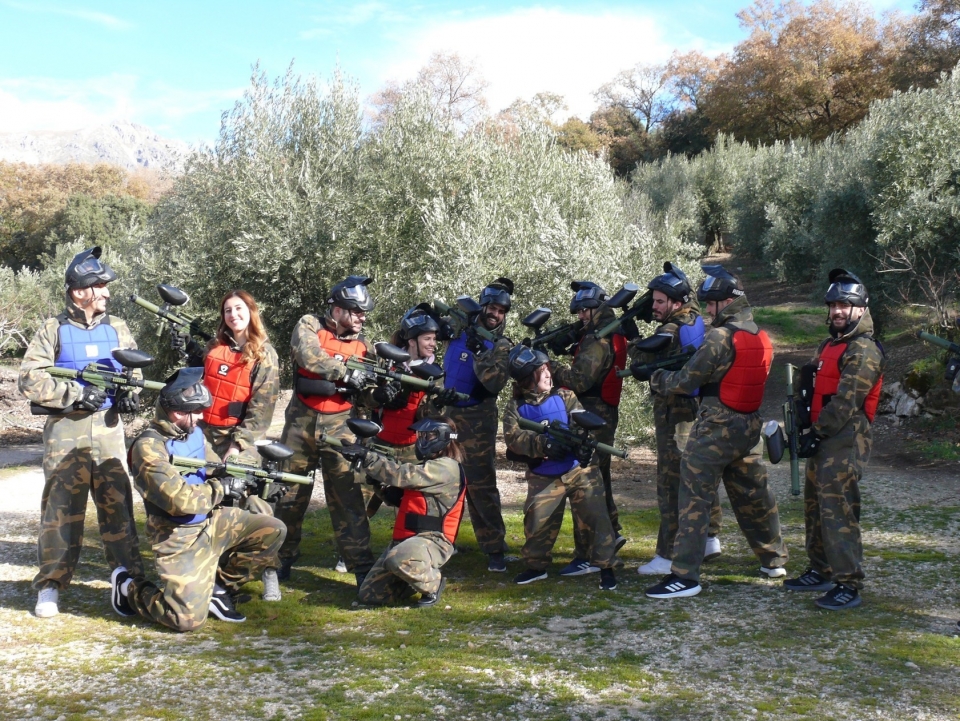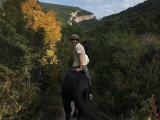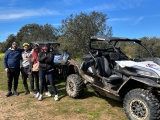First, we recommend considering your child’s personality and preferences, as the goal is for them to have an unforgettable summer holiday—learning, having fun, and making new friends. In fact, we suggest discussing the options with them to hear their preferences before deciding.

Once you’ve listened to your child, you’ll find a wide variety of camps to choose from, based on theme:
- Sports camps: If your child loves sports or wants to try something new, they can enjoy football, basketball, surfing, kitesurfing, tennis, padel, water sports, and more—there’s a camp for every discipline.
- Adventure camps: Kids will love outdoor activities like rope courses, hiking, kayaking, climbing walls, rock climbing, canyoning, rafting, orienteering, horse riding, archery, and more.
- English language camps: If you want your child to improve their English, these camps combine dynamic, fun activities with language learning.
- Arts camps: If your child is creative, let them shine in dance, music, theatre, or film camps.
- Equestrian camps: Perfect for horse lovers—whether they’re beginners or looking to advance their riding skills.

Once you’ve narrowed down the theme(s) that appeal to both you and your child, consider these factors:
Day camp or residential camp?
Urban day camps are increasingly popular, offering parents a childcare solution during work hours. These cater to kids aged 3–16, with age-appropriate activities. If you prefer this option, you’ll likely find local schools, sports centres, or arts venues running summer programmes. Alternatively, if you want your child to immerse themselves in nature, build independence, and socialise, there are countless residential camps across Spain with varying durations.
Age group:
Choose a camp where your child will be with peers their own age and where activities are tailored to them. Some camps cater to broad age ranges (e.g., 5–18), so check the programme and ask how many children are in their age bracket to ensure they feel comfortable and integrated.
Preferred location:
Decide which region(s) you’d like your child to visit. Some parents prefer nearby camps for easier logistics and peace of mind, while others prioritise the camp’s activities, climate, or budget over distance. We recommend weighing transport and camp duration carefully if considering a camp far from home.

Beach or mountains?
A classic dilemma! Choose between a beach camp packed with seaside activities or a mountain/countryside retreat where nature and fresh air take centre stage.
Dates:
Camps run on fixed schedules, so if your dates are inflexible, filter options early. You might find the perfect camp—just not in your preferred week or month!
Key factors to compare before deciding:
After selecting the camp type, location, dates, and format (day/residential), consider these decisive details:
- Staff-to-child ratio: A lower ratio (ideally 8–10 children per instructor) means more personalised attention. This can affect pricing, so compare carefully.
- Staff qualifications: Especially important for language camps—check if teachers are native speakers or hold relevant certifications.
- Meals: Most camps include 4–5 daily meals, but quality varies. Check if they have on-site kitchens, offer balanced diets, and accommodate allergies or intolerances.

- Accommodation: Options range from tents to hotels, though most common are shared dormitories in hostels or student residences (split by age and gender).
- Facilities: Parents want the best—look for sports courts, stages, spacious dining areas, and (crucial for summer) a swimming pool.

- Medical care: Ensure the camp has a nurse or medical team, or confirm proximity to the nearest clinic—especially if your child has allergies or chronic conditions.
- Transport: Many camps offer transfers from nearby cities or transport hubs. If not, check if they provide pickups from local bus/train stations or airports.
- Book early: Camps have limited spaces, and popular ones fill fast. To avoid disappointment, secure your spot well in advance.












